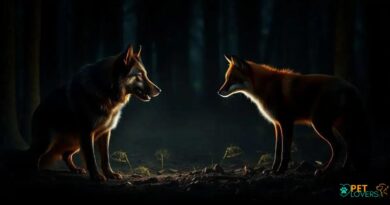What is Origin
What is Origin of Dogs?
The term “origin” in relation to dogs refers to the historical and evolutionary beginnings of domestic canines. Understanding the origin of dogs involves exploring their ancestry, which traces back to wolves. Genetic studies indicate that dogs were domesticated between 20,000 to 40,000 years ago, primarily in Asia. This domestication process was influenced by various factors, including human interaction and environmental changes, leading to the diverse breeds we see today.
Evolutionary Background
The evolutionary background of dogs is a fascinating journey that highlights their transformation from wild predators to beloved companions. The domestication of dogs likely began when early humans started to form communities and settled in one place. Wolves that were less fearful of humans may have scavenged near human camps, leading to a mutually beneficial relationship. Over generations, these wolves adapted to human environments, eventually evolving into the domestic dogs we are familiar with.
Geographical Influence on Origin
The geographical influence on the origin of dogs is significant, as different regions contributed to the development of various breeds. For instance, the Arctic regions gave rise to breeds like the Siberian Husky, while the Mediterranean area influenced the creation of breeds such as the Greyhound. Each environment shaped the physical and behavioral traits of dogs, resulting in a wide range of breeds adapted to specific tasks, climates, and lifestyles.
Genetic Studies and Findings
Recent genetic studies have provided deeper insights into the origin of dogs, revealing their close relationship with wolves. Researchers have sequenced the genomes of various dog breeds and their wild relatives, uncovering the genetic markers that distinguish them. These findings suggest that the domestication process involved selective breeding, where humans favored traits such as tameness, loyalty, and sociability, further differentiating dogs from their wild ancestors.
Role of Humans in Domestication
Humans played a crucial role in the origin of dogs, as their interactions and selective breeding practices shaped the evolution of canines. Early humans likely selected wolves that exhibited less aggressive behavior and a greater willingness to cooperate. Over time, these traits became more pronounced, leading to the development of dogs that could assist in hunting, herding, and guarding. This partnership between humans and dogs laid the foundation for the strong bond we share today.
Impact of Environment on Dog Breeds
The environment has had a profound impact on the origin and development of dog breeds. Factors such as climate, terrain, and available resources influenced the physical characteristics and behaviors of different breeds. For example, dogs bred in colder climates often have thicker fur and a stockier build, while those from warmer regions may have shorter coats and leaner bodies. This adaptability showcases the remarkable ability of dogs to thrive in diverse environments.
Cultural Significance of Dogs
The cultural significance of dogs throughout history also reflects their origin and evolution. In many societies, dogs have been revered as symbols of loyalty, protection, and companionship. Ancient civilizations, such as the Egyptians and Greeks, recognized the importance of dogs in their daily lives and often depicted them in art and literature. This cultural appreciation has contributed to the enduring relationship between humans and dogs across the globe.
Modern Implications of Dog Origin
Understanding the origin of dogs has modern implications for breeding practices and animal welfare. Knowledge of a breed’s history can inform responsible breeding decisions, helping to preserve genetic diversity and reduce the risk of inherited health issues. Additionally, recognizing the traits that were favored during domestication can guide training and socialization efforts, ensuring that dogs are well-adjusted companions in contemporary society.
Conclusion: The Ongoing Journey
The origin of dogs is an ongoing journey that continues to evolve as we learn more about their history and genetics. As our understanding deepens, we can appreciate the unique bond we share with these remarkable animals. From their beginnings as wild wolves to their current status as cherished family members, dogs have played an integral role in human history, and their story is far from over.




